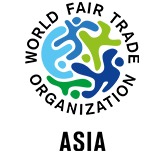
Gender inequality in the home, the workplace, and the wider society is an undeniable issue not just in Asia but around the world. The theme of this year’s International Women’s Day, being celebrated worldwide on March 8, is #BeBoldForChange. At WFTO Asia, we believe that Fair Trade is a BOLD ACTION that leads to REAL CHANGE for women’s empowerment, particularly economic empowerment. Fair Trade fosters decent working conditions and gender equality in workplaces . Fair Trade provides women with #fairchancesatwork
As part of our countdown to the day, we would like to share some commonly overlooked facts about gender in the workplace and beyond.
When you educate a woman, the ripple effects are felt throughout her whole community. Women who attend just one extra year of secondary education earn 25% more income than women who don’t. A study using data from 219 countries found that for every additional year of education for women of reproductive age, child mortality decreased by 9.5 percent¹. Education increases employment opportunities— it also contributes to a heightened sense of confidence and empowerment that helps women in the workforce assert their rights, demand improved working conditions, and bargain for fair wages. By honoring WFTO Fair Trade Principles of gender non-discrimination and capacity building, many Fair Trade Organisations across Asia are bringing the gift of education to marginalised women, opening doors of opportunity and creating individual investments that will have monumental impacts on communities.
In the same vein, research has shown time and time again that household income in the hands of a woman is more likely to be used for the benefit of the family. A 2012 report from the World Bank states that finances controlled by a woman, whether through cash transfer or from her own earnings, consistently benefit her children in ways that the same amount of money controlled by a male head of household does not².
Microfinance programs, first used widely by the Bangladeshi non-profit Grameen Bank, are a key strategy for promoting both poverty alleviation and women’s empowerment. What’s more, micro financing and Fair Trade are natural allies. By concentrating financial resources on supporting small business endeavors within close-knit communities (often referred to as Self-Help Groups or SHGs), the microloan process keeps the supply chain local and keeps the means of production in the hands of the producers.
For decades farming has been wrongly viewed as the almost exclusive domain of men. That misconception is gradually eroding as international groups like the United Nations are shining a light on the very female face of agriculture in Asia, Africa and elsewhere. While men are not providing the majority of the muscle behind agricultural labor, they are reaping most of the benefits. Women comprise between 43 and 70 percent of the agricultural labor force (with wide variances between countries) but only 20 percent of landowners are women³. Fair Trade initiatives like those used by WFTO Asia’s member organizations help address this discrepancy by redirecting resources and training to benefit women farmers and laborers.
Research supports the idea that unregulated trade liberalization has negative implications for women’s economic empowerment. By opening their economies to multinational grocery chains and other industries that benefit from the global supply chain to offer cheap prices, many countries are shrinking the local market access of informal laborers and small farmers – two sectors dominated by women. Fair Trade addresses this head-on by nurturing the productive capacity of small producers and entrepreneurs and protecting their access to resources as well as their share in the global economy.
Access to capital like land, resources, and education presents an enduring obstacle to women around the world. By providing women with the training and tools to improve their employment prospects, WFTO Fair Trade Organizations are working to help them better their own livelihoods and those of their families. In our commitment to gender equity in the workplace – including equal pay for equal work even in the informal sector – WFTO Asia continues to be an ally to all women.
Sources: 1) unwomen.org 2) worldbank.org 3) wfo-oma.com
